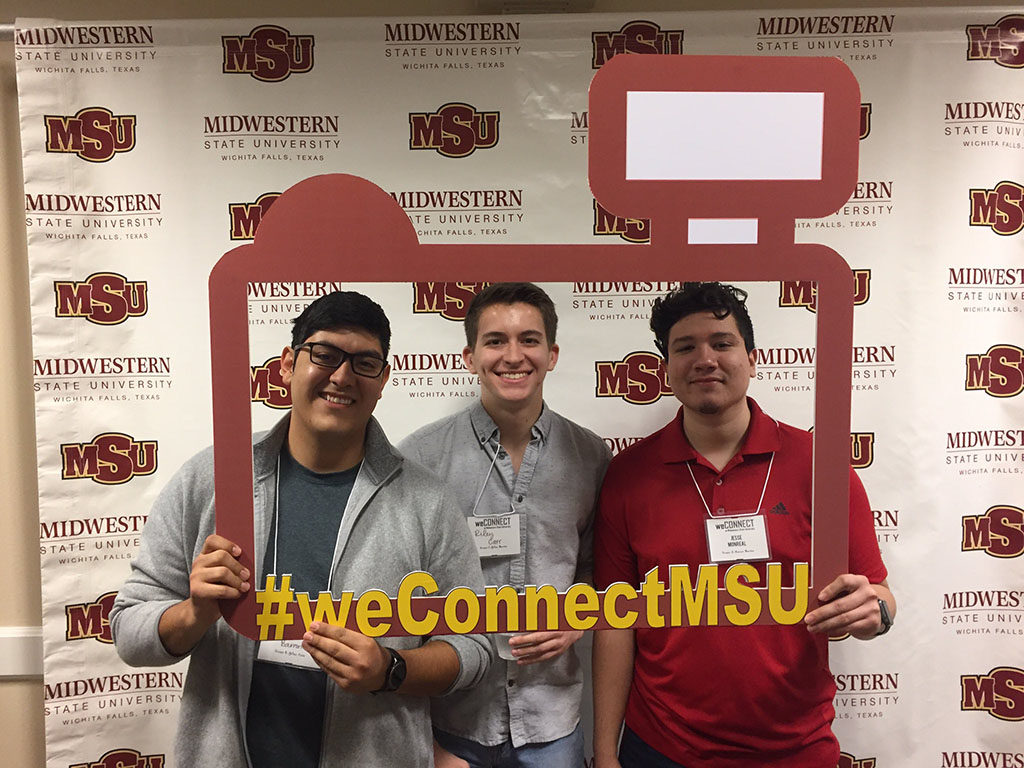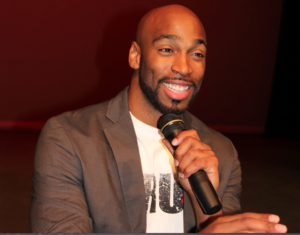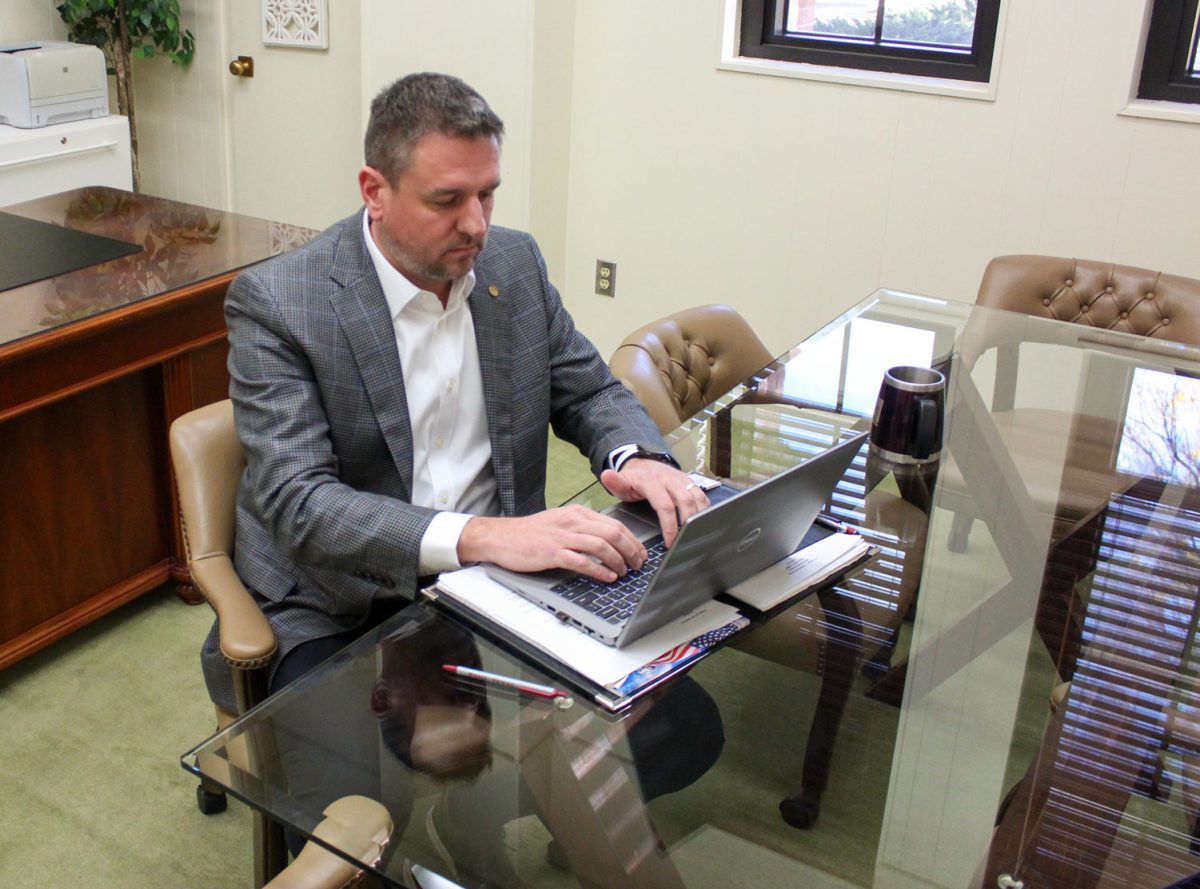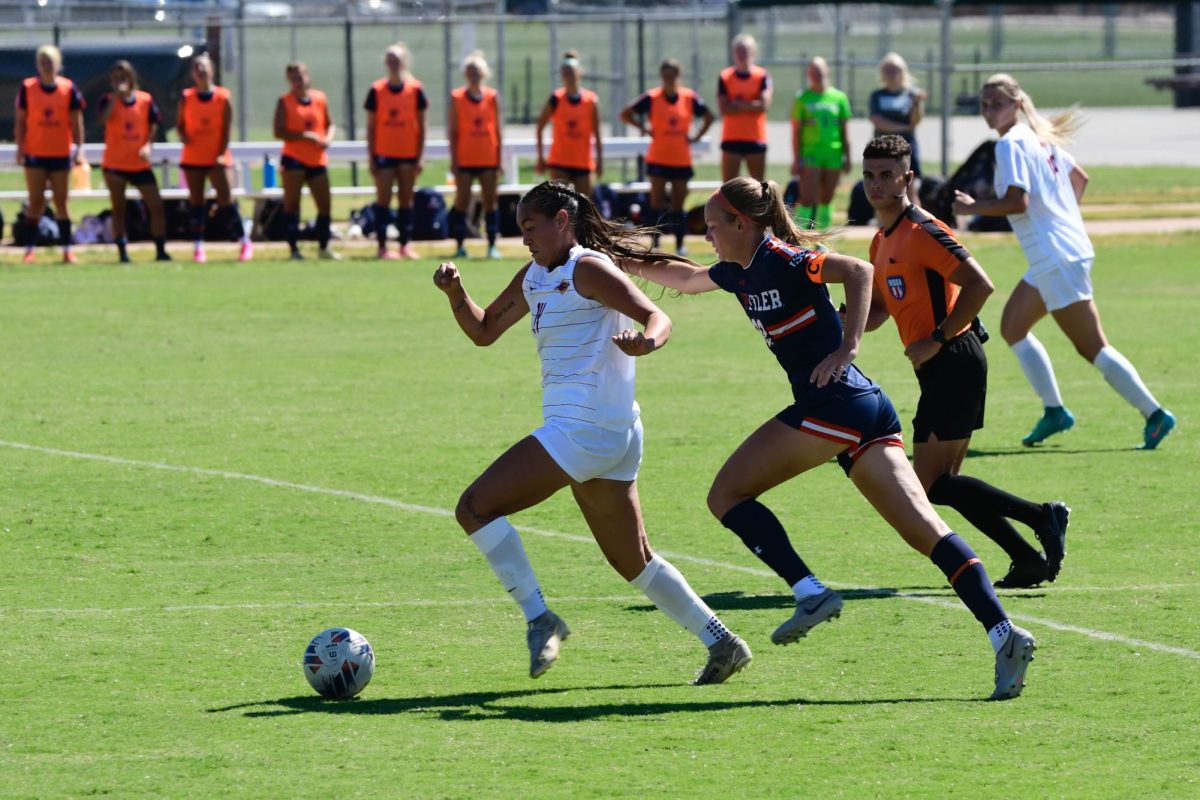
As social issues on a national level become a bigger concern, so does the priority of spreading awareness on campus. weConnect, a one-day summit meeting, works toward connecting students with each other as a way to learn more about their peers, as well as gaining insight on what’s happening around them.
Student Development and Orientation held weConnect on Saturday, Feb. 11, which brought social justice awareness to the campus through various speakers in the Clark Student Center. Those who came to talk at the conference included special keynote speaker Monti Washington, professors from the university and other universities, as well as Wichita Falls Mayor Stephen Santellana. The conference broke up into three different sections, touching on the subjects of awareness, creating an action plan to bring change and being an ally—someone who speaks against persecution they may not experience themselves.
The highlight of the conference was on the importance of understanding what it means to be an activist. The presentations were aimed toward encouraging students to become better allies.
“Anyone can be an activist,” Brandy Scott, program director for global studies, said. “There aren’t qualifications or personality traits to be one. It comes from personal experience and observing injustice and wanting to create change out of it.”
Scott, one of the speakers at the conference, discussed her personal experiences with her own activism, saying that while she has always considered herself an introvert, it doesn’t stop her from being an activist.
“What’s great about activism is you can think about the cause you want to address and do something as simple as writing a letter,” she said.
While the speakers discussed on subjects of awareness and action, there was also time for attendees to participate and express their thoughts.
The keynote speaker, Monti Washington is a motivational and inspirational speaker who travels across the country to talk to students on the importance of cultural diversity and inclusion on campus. He discussed these themes in his performance, “Which Lives Matter”, which consisted of a slam poetry piece he wrote, educational lectures, and active participation from viewers in an effort to understand one another.
“He was awesome. It was so incredible how he was able to get the entire crowd involved. Everybody got emotional at the end when we talked about not assuming people’s stories, “ Neftaly Aranda, psychology and criminal justice junior, said.
Aranda, president of Kappa Delta Chi, had to be at the conference to represent her sorority. She said she came out the conference knowing more than she did before going in.
“We really learned how to make action plans and how to be an ally. Even with a busy schedule there’s things you can do,” Arnada said. “He mentioned shirts at one point, which my sorority has been really interested in doing. We want to make shirts that say ‘Mustangs Stay Woke’ to kind of spread awareness. His mentioning of shirts really pushed us to move forward with the idea.”
Dareem Antoine, economics and math senior, talked about howWashington was able to convey the importance of understanding other cultures and being able to create human connection through it.
“I have a culture that’s completely different from Texas culture. Sometimes I see people be less responsive to mine and other cultures because they don’t understand or are not willing to branch out, “ he said. “As the speaker [Washington] said, it’s our duty to be aware of the hurt we may cause by our own actions or words.”
Washington’s speech had attendees connect with one another in ways that required them to open up to strangers and fellow classmates.
“One of the things he did was dim the lights and allowed us to share our stories just by standing up and down and not having to say a word. It reminded me of things I don’t think about as much anymore. It brought me back to those sad places, but with everyone else participating, it made me realize I’m not alone,” Antoine said.
Antoine also said he agreed with Washington’s message, about not assuming what other people have gone through, and learning how to understand each other.
“We don’t always understand someone’s story based on how they look. It’s good to listen and be understanding because you never know what someone else is going through,” he said.
Faculty and staff members stood before students to talk on their own personal experiences dealing with injustice and having to be an ally in a time of injustice to help create a sense of vulnerability in the audience.
“Being an ally is not being sympathetic, but opening up and really trying to understand another person. It’s deeper than just feeling sorry for someone,” Cammie Dean, director of student development and orientation, said during her interview on stage.
Jonathon Quam, assistant professor of mass communciation also discussed making sacrifices to take action.
“One of the things we can do is take these issues and bring it back to our own communities. That’s action and sacrifice in itself,” Quam said.
Sacrifice includes being involved with more outward plans, such as protesting the issue or voicing a concern to the public. Angela Cartwright, assistant professor of curriculum and learning, went into detail on the history of protesting, discussing the life experiences of famous civil rights activists and how it could apply to modern day protesting.
“Be a voice in the wilderness and speak truth to power. We protest because we cannot be silent anymore,” Cartwright said.
Since the conference also focused on change and creating acceptance within a community, Wichita Falls Mayor Stephen Santellana made an appearance to ask the audience on what changes they would like to see for the city and ideas on how to retain millennials to keep Wichita Falls an active city.
Through a system of hand-raising votes, participants in the room agreed there needed to be a focus on downtown development. The mayor left with a promise – city council will begin working toward a nicer and better downtown.
The conference lasted 9 a.m. – 4 p.m. with a one-hour lunch in the middle.
Monti Washington’s Biography

Born into a family of poverty and abusive conditions, Monti Washington has used his life experiences as a way to share with others around the country in an attempt to make people more understanding of one another. His keynote speech, “Which Lives Matter,” focuses on getting students to interact with each other in ways that would be beneficial to creating active members of their community and working toward a more peaceful environment.
To fight against the stereotypes that come with being raised in poor living conditions, Washington pushes for constant positive outlooks in his life and spreading that to those around him, incorporating it into his passionate and educational speeches.












